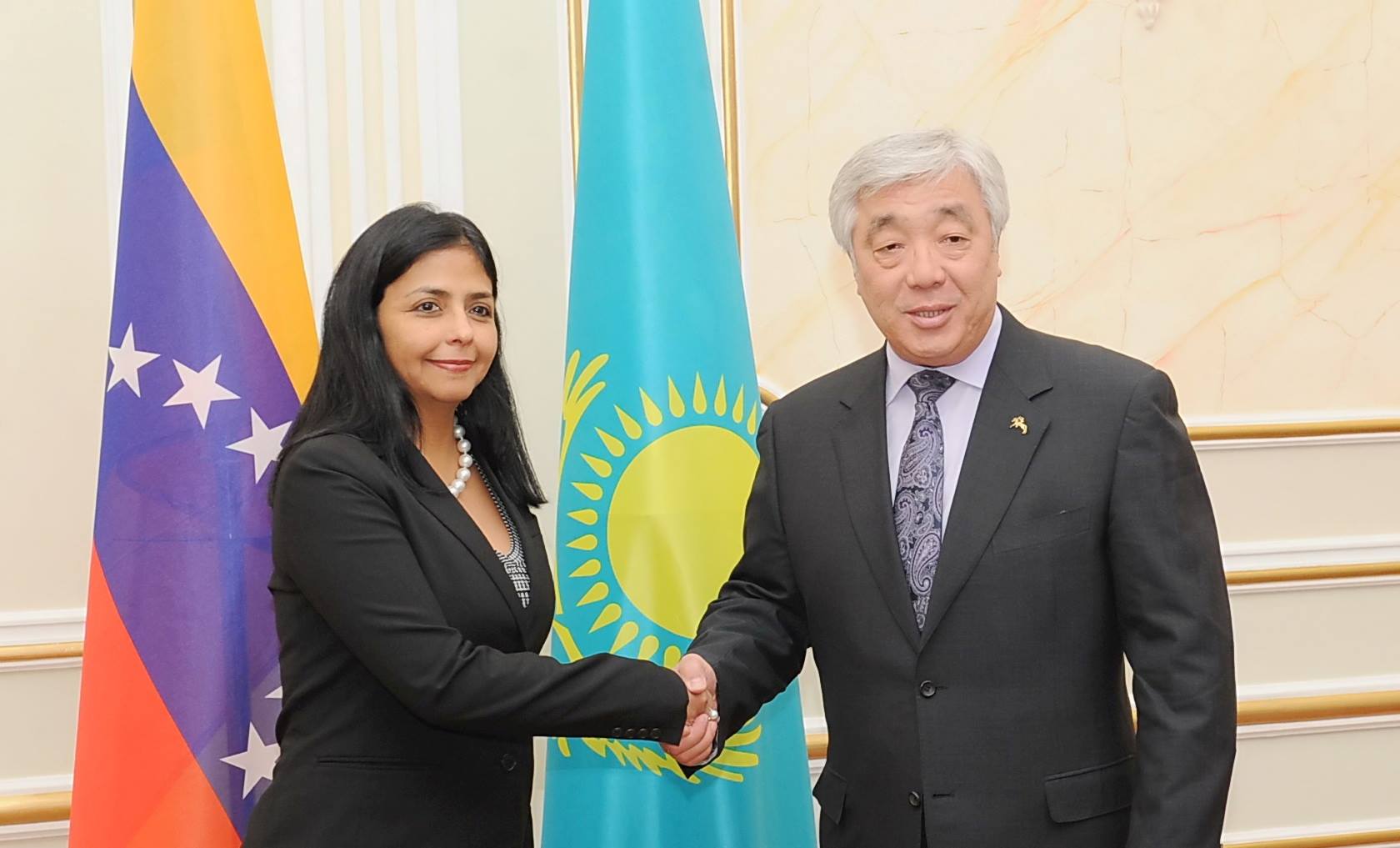The Venezuelan Minister of Foreign Affairs, Delcy Rodríguez, and Kuwait's Minister of Petroleum, Al Omair, met on Sunday to ponder strategies to stabilize dwindling oil prices.
Later, Minister Rodríguez commented that she had also met with Saudi Arabian Minister of Petroleum, Al Naimi, to review proposals to strengthen the oil market, harmed by the increase in oil production in countries such as the United States, state-run news agency AVN reported.
Seeking agreements among oil nations, Venezuelan President Nicolás Maduro went on an international tour including China, Russia, and several Member States of the Organization of Petroleum Exporting Countries (OPEC), with a view to stabilizing oil prices and entering into strategic alliances.
Source: http://www.eluniversal.com/





